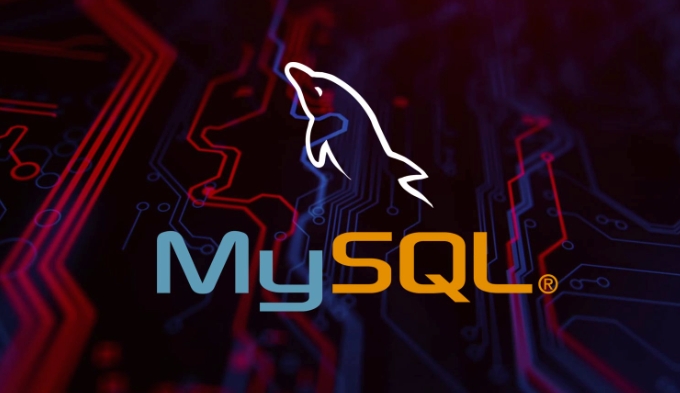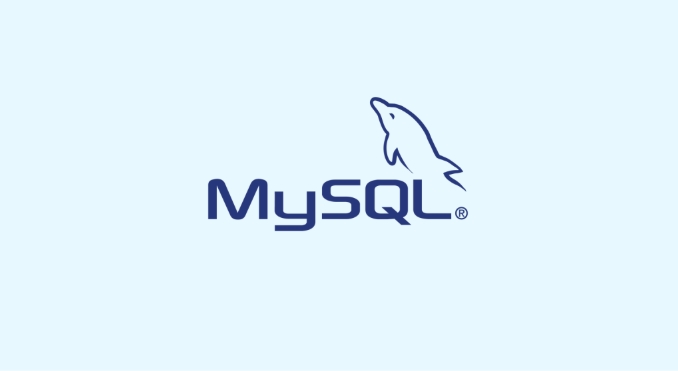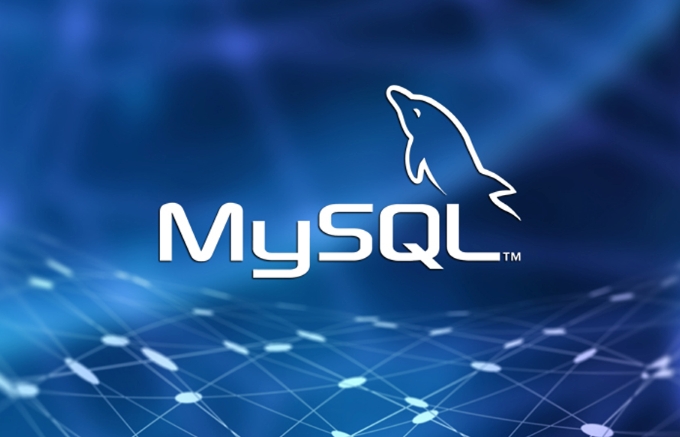How to add the MySQL bin directory to the system PATH
Jul 01, 2025 am 01:39 AMTo add the MySQL bin directory to the system PATH, it needs to be configured according to the different operating systems. 1. Windows system: Find the bin folder in the MySQL installation directory (the default path is usually C:\Program Files\MySQL\MySQL Server XX\bin), right-click "This Computer" → "Properties" → "Advanced System Settings" → "Environment Variables", select Path in "System Variables" and edit it, add the MySQL bin path, restart the command prompt after saving and enter mysql --version verification; 2. macOS and Linux systems: Bash user edits ~/.bashrc or ~/.bash_profile, Zsh user edits ~/.zshrc, add export PATH="/usr/local/mysql/bin:$PATH", and execute source after saving The command makes the configuration take effect and uses echo $PATH to check whether the MySQL path has been included; common problems include path errors, unrefreshed shells, confusion between user variables and system variables, multi-version conflicts, etc., and you need to check one by one to ensure that the configuration is correct and effective.

After MySQL is installed, many command-line operations need to enter the bin directory to run MySQL tools, such as mysql , mysqldump , etc. In order to avoid manually switching paths every time, adding MySQL's bin directory to the system PATH is a very practical operation. The following explains how to set it up according to different operating systems.

How to add MySQL bin to PATH on Windows system
On Windows, setting PATH through environment variables is most common. Find the bin folder in the MySQL installation directory (the default path is usually C:\Program Files\MySQL\MySQL Server XX\bin ), and follow the following steps:

- Right-click "This Computer" or "My Computer" and select "Properties"
- Click "Advanced System Settings" on the left
- Click "Environment Variable" in the pop-up window
- In the System Variables area, find and select
Path, click Edit - Click "New" and enter the
binpath of MySQL - Continuously point "OK" to save all settings
After completion, open a new command prompt window and enter mysql --version to test whether it takes effect. If the version information is displayed, the configuration is successful.
How to add PATH on macOS and Linux systems
macOS and Linux usually use Bash or Zsh as the default shell, and the configuration method is similar, mainly modifying the configuration file of the corresponding shell.

Bash User:
Edit the ~/.bashrc or ~/.bash_profile file and add the following content:
export PATH="/usr/local/mysql/bin:$PATH"
Zsh User:
Edit the ~/.zshrc file, and add the above line of code.
After saving, execute source ~/.bashrc or source ~/.zshrc to make the configuration take effect immediately. You can use echo $PATH to see if the current PATH contains the MySQL path.
Note: The MySQL installation locations may be different in different systems. You can use
which mysqlor find the installation directory to confirm the actual path.
Frequently Asked Questions and Notes
Sometimes, PATH is clearly set, but the command is still unrecognized. This may be caused by the following reasons:
- The path is written incorrectly : for example, there are too many spaces, misspellings, or using backslashes
\instead of forwardslashes/ - The shell has not been refreshed : remember to run the
sourcecommand after modifying the configuration file, otherwise the new terminal will take effect - User variable vs System variable : Is the current user's PATH or system level set under Windows? Make sure you added it in the correct variable
- Multi-version conflict : If multiple MySQL or MariaDB are installed in the system, there may be command conflicts. You can use
which mysqlto check which path the executable file is called.
Basically that's it. The whole process is not complicated, but some details are easy to ignore, especially the issues of paths and shell types. As long as you check it step by step, it can usually be done.
The above is the detailed content of How to add the MySQL bin directory to the system PATH. For more information, please follow other related articles on the PHP Chinese website!

Hot AI Tools

Undress AI Tool
Undress images for free

Undresser.AI Undress
AI-powered app for creating realistic nude photos

AI Clothes Remover
Online AI tool for removing clothes from photos.

Clothoff.io
AI clothes remover

Video Face Swap
Swap faces in any video effortlessly with our completely free AI face swap tool!

Hot Article

Hot Tools

Notepad++7.3.1
Easy-to-use and free code editor

SublimeText3 Chinese version
Chinese version, very easy to use

Zend Studio 13.0.1
Powerful PHP integrated development environment

Dreamweaver CS6
Visual web development tools

SublimeText3 Mac version
God-level code editing software (SublimeText3)

Hot Topics
 Choosing appropriate data types for columns in MySQL tables
Jul 15, 2025 am 02:25 AM
Choosing appropriate data types for columns in MySQL tables
Jul 15, 2025 am 02:25 AM
WhensettingupMySQLtables,choosingtherightdatatypesiscrucialforefficiencyandscalability.1)Understandthedataeachcolumnwillstore—numbers,text,dates,orflags—andchooseaccordingly.2)UseCHARforfixed-lengthdatalikecountrycodesandVARCHARforvariable-lengthdata
 How to use PHP to develop a Q&A community platform Detailed explanation of PHP interactive community monetization model
Jul 23, 2025 pm 07:21 PM
How to use PHP to develop a Q&A community platform Detailed explanation of PHP interactive community monetization model
Jul 23, 2025 pm 07:21 PM
1. The first choice for the Laravel MySQL Vue/React combination in the PHP development question and answer community is the first choice for Laravel MySQL Vue/React combination, due to its maturity in the ecosystem and high development efficiency; 2. High performance requires dependence on cache (Redis), database optimization, CDN and asynchronous queues; 3. Security must be done with input filtering, CSRF protection, HTTPS, password encryption and permission control; 4. Money optional advertising, member subscription, rewards, commissions, knowledge payment and other models, the core is to match community tone and user needs.
 mysql common table expression (cte) example
Jul 14, 2025 am 02:28 AM
mysql common table expression (cte) example
Jul 14, 2025 am 02:28 AM
CTE is a temporary result set in MySQL used to simplify complex queries. It can be referenced multiple times in the current query, improving code readability and maintenance. For example, when looking for the latest orders for each user in the orders table, you can first obtain the latest order date for each user through the CTE, and then associate it with the original table to obtain the complete record. Compared with subqueries, the CTE structure is clearer and the logic is easier to debug. Usage tips include explicit alias, concatenating multiple CTEs, and processing tree data with recursive CTEs. Mastering CTE can make SQL more elegant and efficient.
 Setting up semi-synchronous replication in MySQL
Jul 15, 2025 am 02:35 AM
Setting up semi-synchronous replication in MySQL
Jul 15, 2025 am 02:35 AM
The steps for setting MySQL semi-synchronous replication are as follows: 1. Confirm the version supports and load the plug-in; 2. Turn on and enable semi-synchronous mode; 3. Check the status and operation status; 4. Pay attention to timeout settings, multi-slave library configuration and master-slave switching processing. It is necessary to ensure that MySQL 5.5 and above versions are installed, rpl_semi_sync_master and rpl_semi_sync_slave plugins, enable corresponding parameters in the master and slave library, and configure automatic loading in my.cnf, restart the service after the settings are completed, check the status through SHOWSTATUS, reasonably adjust the timeout time and monitor the plug-in operation.
 mysql incorrect string value for column
Jul 15, 2025 am 02:40 AM
mysql incorrect string value for column
Jul 15, 2025 am 02:40 AM
MySQL error "incorrectstringvalueforcolumn" is usually because the field character set does not support four-byte characters such as emoji. 1. Cause of error: MySQL's utf8 character set only supports three-byte characters and cannot store four-byte emoji; 2. Solution: Change the database, table, fields and connections to utf8mb4 character set; 3. Also check whether the configuration files, temporary tables, application layer encoding and client drivers all support utf8mb4; 4. Alternative solution: If you do not need to support four-byte characters, you can filter special characters such as emoji at the application layer.
 Automating MySQL Deployments with Infrastructure as Code
Jul 20, 2025 am 01:49 AM
Automating MySQL Deployments with Infrastructure as Code
Jul 20, 2025 am 01:49 AM
To achieve MySQL deployment automation, the key is to use Terraform to define resources, Ansible management configuration, Git for version control, and strengthen security and permission management. 1. Use Terraform to define MySQL instances, such as the version, type, access control and other resource attributes of AWSRDS; 2. Use AnsiblePlaybook to realize detailed configurations such as database user creation, permission settings, etc.; 3. All configuration files are included in Git management, support change tracking and collaborative development; 4. Avoid hard-coded sensitive information, use Vault or AnsibleVault to manage passwords, and set access control and minimum permission principles.
 How to use PHP to develop product recommendation module PHP recommendation algorithm and user behavior analysis
Jul 23, 2025 pm 07:00 PM
How to use PHP to develop product recommendation module PHP recommendation algorithm and user behavior analysis
Jul 23, 2025 pm 07:00 PM
To collect user behavior data, you need to record browsing, search, purchase and other information into the database through PHP, and clean and analyze it to explore interest preferences; 2. The selection of recommendation algorithms should be determined based on data characteristics: based on content, collaborative filtering, rules or mixed recommendations; 3. Collaborative filtering can be implemented in PHP to calculate user cosine similarity, select K nearest neighbors, weighted prediction scores and recommend high-scoring products; 4. Performance evaluation uses accuracy, recall, F1 value and CTR, conversion rate and verify the effect through A/B tests; 5. Cold start problems can be alleviated through product attributes, user registration information, popular recommendations and expert evaluations; 6. Performance optimization methods include cached recommendation results, asynchronous processing, distributed computing and SQL query optimization, thereby improving recommendation efficiency and user experience.
 how to connect excel to mysql database
Jul 16, 2025 am 02:52 AM
how to connect excel to mysql database
Jul 16, 2025 am 02:52 AM
There are three ways to connect Excel to MySQL database: 1. Use PowerQuery: After installing the MySQLODBC driver, establish connections and import data through Excel's built-in PowerQuery function, and support timed refresh; 2. Use MySQLforExcel plug-in: The official plug-in provides a friendly interface, supports two-way synchronization and table import back to MySQL, and pay attention to version compatibility; 3. Use VBA ADO programming: suitable for advanced users, and achieve flexible connections and queries by writing macro code. Choose the appropriate method according to your needs and technical level. PowerQuery or MySQLforExcel is recommended for daily use, and VBA is better for automated processing.






